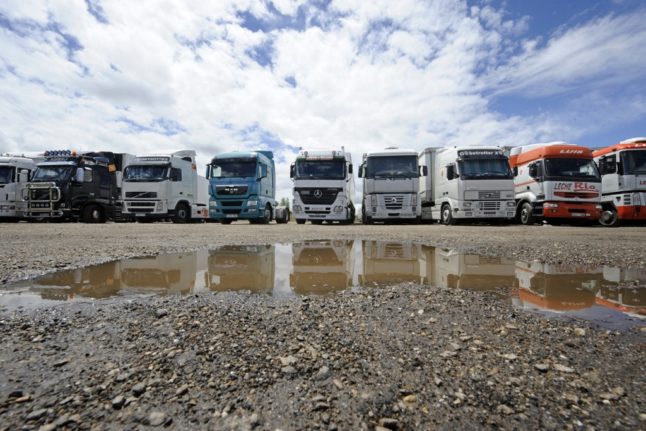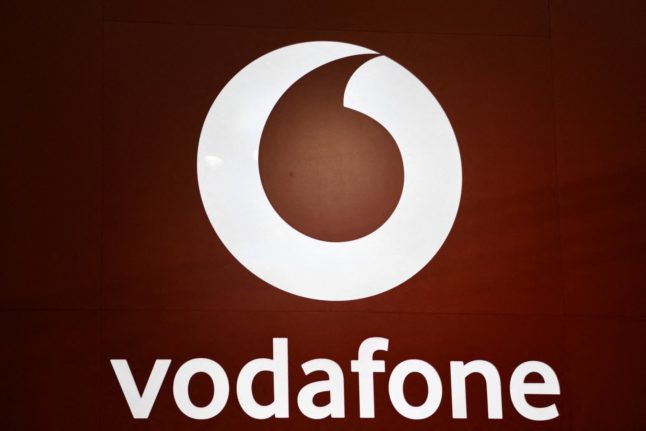Spain’s National Platform for the Defence of Transport last week called an indefinite strike from Monday November 14th, for which it received support from 86 percent of its associated companies.
In a statement, they have called truckers from around Spain to join a demonstration at Madrid’s Atocha train station at 10am on Monday, adding that representatives from Spain’s agriculture, hospitality and livestock sectors will also be present.
This situation is similar to the strike which happened in March 2022, lasting for 20 days and leaving many supermarket shelves empty.
Small transport companies and self-employed truckers have criticised that agreements reached in the spring and ratified in August by the Spanish government have not been complied with.
⭕ #Directo | Huelga de transportistas: miles de camioneros avanzan desde Atocha hacia el Ministerio de Transportes: "Ministra dimisión, cómprate un camión", corean. La marcha es a pie y no hay camiones en el centro de Madrid https://t.co/bQPhCUhCwb | Por @jalcuten y J. González pic.twitter.com/KDdjNY4ulT
— 20minutos.es (@20m) November 14, 2022
Among the agreed measures was a new law preventing them from working at a loss and a new package of direct aid for the sector of €450 million.
Lorry drivers claim that wages have not risen and they are still working at a loss while stating that they will be even more stretched in the coming weeks due to Black Friday and the Christmas period.
“It’s worth nothing if a law is created but not monitored, there is no intent to implement it and give a solution to the problem”, said Manuel Hernández, the president of the platform, at a press conference on Monday November 7th.
He also claims that as a result of this inaction, 250 Spanish transport companies are having to close every month.
In response, Spain’s Transport Minister Raquel Sánchez said that working conditions of carriers “have improved substantially” and that the current situation is very different to what it was a few months ago. “It makes no sense that a new strike should take place right now”, she continued.
Some farming, logistics and hospitality groups have also slammed the planned strike, calling it “irresponsible” for threatening the supply chain at a time when “thousands of companies have their earnings on the line”.
Prime Minister Pedro Sánchez called upon the transport companies to act “responsibly”.
How will the strike affect me?
More than 100 million deliveries are expected to be carried out in Spain between Black Friday and the Christmas period, by far the busiest time of the year.
Experts don’t know exactly yet what damage the strike will be this time, but last March losses amounted to €600 million a day, with the supply of basic products and raw materials seriously affected.
These included food products such as sunflower oil, milk and other fresh products from Andalusia and Murcia, where the strike caused the most damage.
It also had an impact on traffic due to road blockades, it resulted in fuel and building material shortages, led to the temporary closure of vehicle factories due to a lack of spare parts and even threatened the supply of tap water in northern Spain.
Distributors, restauranteurs and other business owners don’t want the situation to be repeated. They are demanding “safety and guarantees for the supply of products and raw materials”.
For toy stores as well as drinks and spirits manufacturers, the lead up to Christmas is the most crucial part of the business year.
There are approximately 365,000 lorry drivers in Spain. Around half of the country’s transport companies are run by self-employed workers, and a further 30 percent are small businesses with fewer than five trucks.
The fact that so much of Spain’s haulier network is made up of microbusinesses with mid to low earnings highlights how exposed the country’s logistical machine is.
In the worst-case scenario, a prolonged trucker strike that continues into December, could mean that anyone doing their Christmas shopping finds that certain items are not available, that they have to pay more for them or wait longer to get them.
The war in Ukraine has already reduced some transport links across Europe, so indefinite strikes could cause the situation to worsen.
Spanish authorities will now be looking to avoid scenes of half-empty shelves in some supermarkets once again.
Supermarket officials have said that since the strike was announced last week, they haven’t noticed any panic buying on the part of shoppers. There are no indications yet that they will struggle to stock their products, but they are also cautiously waiting to see the turnout at the first round of protests on Monday to evaluate the impact.
It’s worth noting that the last time Spanish hauliers carried out a stoppage in March, they helped convince the Spanish government to implement a state-subsidised reduction of 20 euros cents per litre of fuel for all people in Spain, not just for transport workers.



 Please whitelist us to continue reading.
Please whitelist us to continue reading.
Member comments